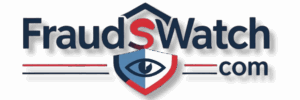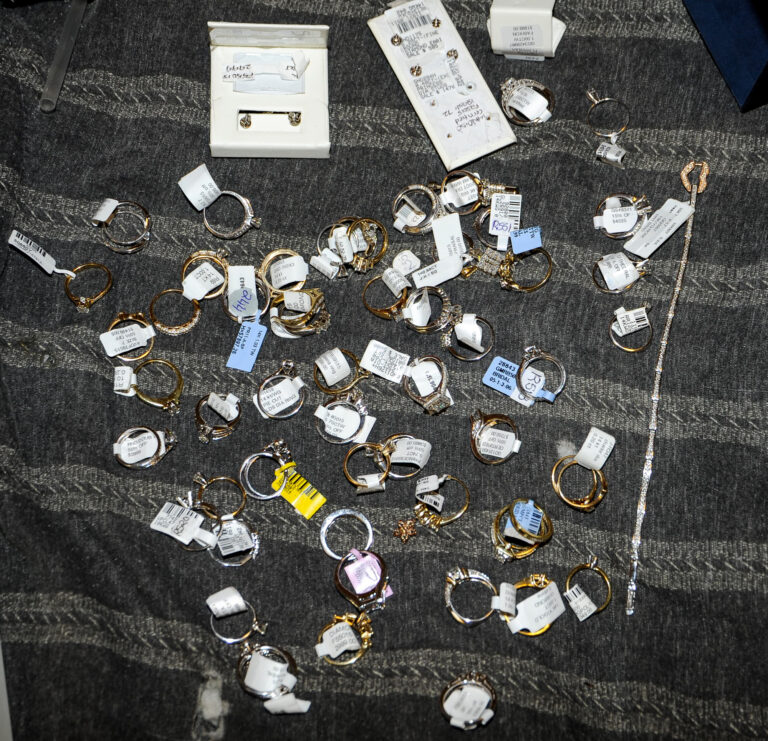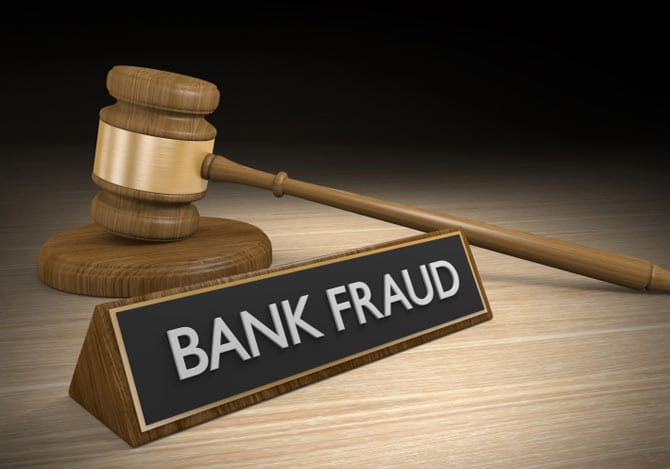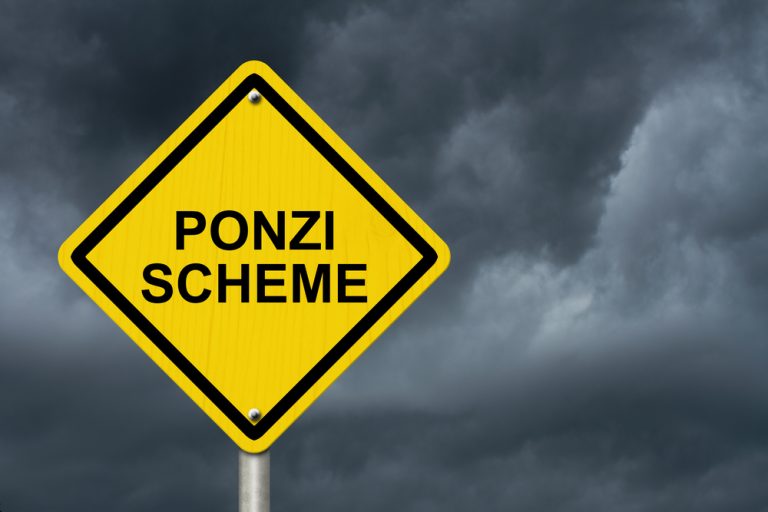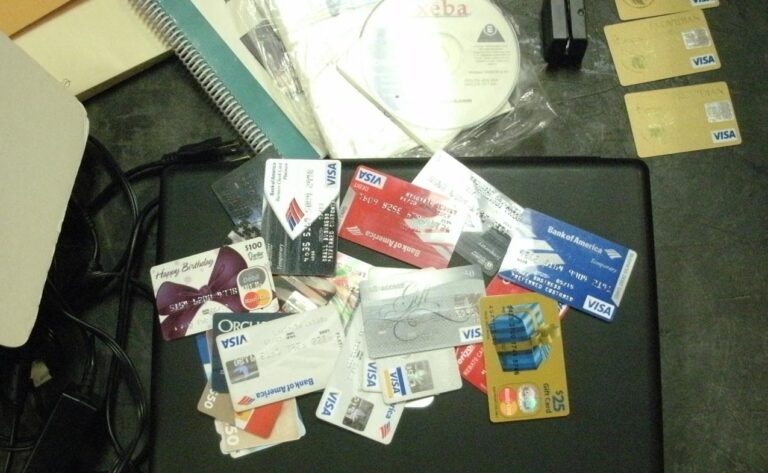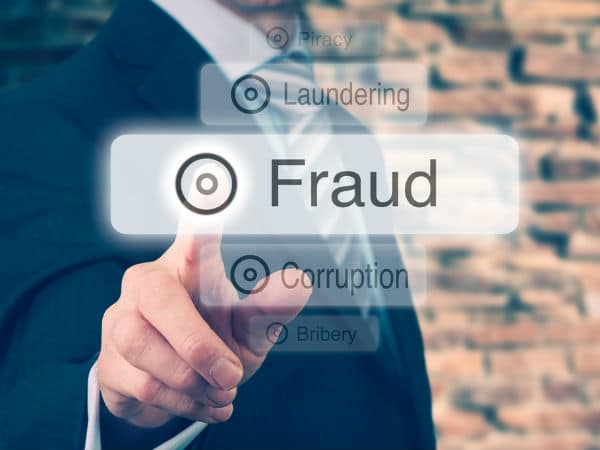Anatomy of a Scandal: How a NY Governor’s Aide Allegedly Masterminded an $8M COVID PPE Fraud and Kickback Scheme
The Pandemic, The Panic, and The Alleged Profiteers
In the chilling early days of March 2020, New York State was not merely a part of a global health crisis; it was the global epicenter. The novel coronavirus tore through the population with terrifying speed, transforming the familiar rhythms of life into a daily tableau of sirens, overflowing hospitals, and heartbreaking loss. On March 1, the state confirmed its first case. By April 4, it was reporting a staggering 12,274 new cases in a single day, and by April 10, New York had more confirmed cases than any country outside the United States. The state was in a declared state of emergency, a full lockdown was in effect, and an atmosphere of profound desperation had taken hold.
Amid this chaos, the most critical battle was being fought on the front lines by healthcare workers, who faced the viral onslaught with dwindling supplies. A worldwide scramble for Personal Protective Equipment (PPE)—masks, gloves, gowns—was underway. Traditional supply chains had collapsed under the unprecedented demand. The global market devolved into what officials described as a “seller’s market,” a chaotic free-for-all where states and nations found themselves in a desperate bidding war against one another. Most of the world’s PPE was produced in Asia, particularly China, where exports had slowed due to the country’s own fight against the virus, creating an extreme supply shock. In this environment of panic and scarcity, the normal rules of government procurement were cast aside in the name of speed, creating a fertile ground for opportunism and fraud.
It is against this backdrop of fear and systemic breakdown that federal prosecutors have painted a picture of staggering corruption allegedly orchestrated from within the highest levels of the New York State government. The protagonists of this narrative are Linda Sun, a long-serving and high-ranking public official, and her husband, Chris Hu, a Manhasset-based businessman. Sun was the consummate insider, a naturalized U.S. citizen who had built a 15-year career in New York government, serving in a series of increasingly influential roles under two governors, Andrew Cuomo and Kathy Hochul. Her positions included Director of Asian American Affairs, Deputy Chief Diversity Officer, and ultimately, Deputy Chief of Staff, making her the highest-appointed Asian-American in the Hochul administration at the time.
A second superseding indictment, returned by a federal grand jury in Brooklyn, alleges that while New Yorkers were dying and the state was desperately seeking life-saving equipment, Sun was abusing her position of public trust. As a key member of the state’s emergency PPE procurement task force, she allegedly masterminded a fraudulent scheme to steer tens of millions of dollars in state contracts to companies secretly connected to her own family and her husband. The goal, prosecutors claim, was an illicit payday of over $8 million, facilitated by forged documents, brazen lies to her colleagues, and a complex web of kickbacks and money laundering. These allegations are layered on top of a prior indictment accusing Sun of acting as an unregistered agent for the People’s Republic of China, a charge that adds a deeply troubling national security dimension to the case.
This report offers the most comprehensive public analysis of the sprawling federal case against Linda Sun and Chris Hu. It will meticulously dissect the anatomy of the alleged PPE fraud, demystify the complex federal charges levied against the couple, and place the scandal within the broader context of the systemic failures and rampant fraud that plagued pandemic-era relief efforts nationwide. Finally, it will explore the grave national security implications that arise when public corruption intersects with allegations of foreign influence, providing a cautionary tale about the profound vulnerabilities that a crisis can expose within our most trusted institutions.
The Anatomy of the Alleged Scheme: Forgery, Lies, and an $8 Million Payday
At the heart of the government’s case is a detailed narrative of deception, one that prosecutors allege was built on a foundation of forged documents, concealed relationships, and the exploitation of a trusted position during a time of unprecedented crisis. The scheme, as outlined in the superseding indictment, was not a technically complex hack of government systems, but rather a sophisticated insider operation that allegedly leveraged personal credibility to bypass the very oversight mechanisms that had been dismantled by the emergency.
The Players and the Setup
Linda Sun’s role within the Cuomo administration placed her in a position of unique influence as the pandemic began. As a member of the state’s emergency task force for PPE procurement, her long-standing ties to the People’s Republic of China (PRC) were initially perceived as a significant asset. With global supply chains in turmoil and much of the world’s PPE manufactured in China, Sun was tasked with helping New York navigate this difficult landscape and connect with vendors recommended by the Chinese government.
According to prosecutors, however, Sun used this position of trust not just to help the state, but to enrich herself. The indictment alleges that alongside legitimate vendors referred by the PRC government, Sun advanced two specific companies with whom she and her husband had undisclosed personal and financial ties. These were the “Cousin Company,” which was operated by one of Sun’s second cousins, and the “Associate Company,” run by her husband, Chris Hu, and one of his business associates. The central claim is that Sun falsely presented these family-linked businesses as if they, too, were official recommendations from Chinese government entities, thereby cloaking them in a veneer of legitimacy they did not possess.
The Forged Email: A “Smoking Gun”?
A cornerstone of the prosecution’s case is a specific and damning piece of evidence: an allegedly forged email. This act of simple, low-tech deception is presented as the mechanism through which Sun allegedly manipulated her colleagues and the state’s procurement process. The indictment lays out a clear, step-by-step timeline of this alleged forgery.
Step 1: The Original Recommendation. On or about March 20, 2020, New York State government officials, including Sun, received a legitimate email from the U.S. representative of the Jiangsu Trade & Business Representative Office in Albany. This email suggested four PRC-based vendors capable of providing PPE, one of which was a producer of critically needed ventilators.
Step 2: The Alleged Alteration. The very next day, on or about March 21, 2020, Sun allegedly forwarded an altered version of that email to her own account. In this manipulated version, prosecutors claim she deleted the legitimate ventilator company from the list and replaced it with the name of the “Cousin Company.” To complete the deception, she allegedly added a note falsely stating that her cousin’s company was recommended by the Jiangsu Department of Commerce.
Step 3: The Deception of Colleagues. Armed with this allegedly falsified document, Sun moved to influence the state’s procurement officials. On or about March 24, 2020, she sent a pivotal email with the subject line: “Already VERIFIED by Linda Sun.” In the body of the message, she vouched for the Cousin Company, claiming it “came recommended by Jiangsu Chamber of Commerce” and that its surgical masks were the “gold standard.” To substantiate her claims, she quoted the text from the altered email she had created, presenting it as official proof of the recommendation. This sequence of events demonstrates a clear and calculated act of deceit. The subject line itself reveals an alleged abuse of authority; Sun was not merely passing along a suggestion but was using her personal credibility to short-circuit any further due diligence by colleagues who were likely overwhelmed and desperate for viable leads.
The Money Trail: From State Coffers to a Spreadsheet Marked “Me”
The prosecution’s narrative follows the money from the state treasury into the defendants’ personal accounts, quantifying the alleged fraud with specific figures drawn from evidence found on their own electronic devices. The numbers paint a stark picture of pandemic profiteering.
Allegedly deceived by Sun’s verification, New York State awarded multiple contracts to both the Cousin Company and the Associate Company in March 2020. Over the course of their engagement, these two entities were paid a combined total of over $44 million by the state, according to one analysis of the indictment. Other reports place the total contract value at just under $35 million.
The indictment alleges that a significant portion of these public funds was funneled back to Sun and Hu in the form of kickbacks. Federal investigators discovered a spreadsheet on the couple’s personal computer that meticulously tracked payments from the Cousin Company to Hu and Sun. These payments, which prosecutors label as kickbacks, totaled approximately $2.3 million during 2020 and 2021.
Perhaps the most powerful piece of evidence detailed in the indictment is another spreadsheet, this one found in one of Chris Hu’s electronic accounts. This document laid out the total expected profits the couple stood to gain from the contracts awarded to both the Cousin Company and the Associate Company. The grand total was a staggering $8,029,741. In the spreadsheet column containing this figure, Hu had allegedly typed a single, damning word: “me”. This personal notation transforms an abstract financial ledger into a clear statement of personal motive and intent, providing prosecutors with a powerful narrative anchor that goes beyond mere numbers to suggest a conscious and greedy mindset.
Concealment, Laundering, and Tax Evasion
The alleged scheme did not conclude with the awarding of contracts and the payment of kickbacks. The indictment further charges Chris Hu with taking active steps to conceal and launder the illicit income. Prosecutors allege that Hu orchestrated the laundering of the kickback money from the Cousin Company, in part by having the cousin make $1.5 million in payments to U.S. financial accounts. These payments were made in three separate $500,000 increments from another entity owned by the cousin.
The timing and method of these transactions are critical to the money laundering charge. Hu allegedly created these U.S. bank accounts on April 29, 2020, just two days before the final $6 million payment from the New York State government to the Cousin Company was due. Furthermore, he allegedly opened these accounts not in his own name, but in the name of a close relative, a classic technique to obscure the true beneficiary of the funds. This close temporal link between the creation of the accounts and the government payment strongly suggests they were established with the specific, premeditated purpose of laundering the proceeds of the PPE scheme.
Finally, the indictment addresses the tax implications of the alleged fraud. The approximately $2.3 million in kickbacks received from the Cousin Company constituted taxable income. Federal prosecutors have charged Hu with tax evasion, alleging that he failed to report these payments as income on the Forms 1040 he filed jointly for himself and Sun for the tax years 2020 and 2021. This charge adds another layer of alleged criminality, demonstrating an effort to defraud not only the State of New York but the U.S. federal government as well.
Table: Summary of Alleged Fraudulent Contracts and Profits
| Company Entity | Alleged Relationship to Defendants | Total NYS Contract Value | Alleged Kickbacks / Profits to Sun & Hu | Source of Evidence |
| Cousin Company | Operated by Linda Sun’s second cousin | Part of the ~$35-44 Million Total | ~$2.3 Million (documented kickbacks) | Spreadsheet on defendants’ computer |
| Associate Company | Operated by Chris Hu & business associate | Part of the ~$35-44 Million Total | Part of the total expected profit | Indictment allegations |
| Total Scheme | ~$35-44 Million | $8,029,741 (total expected profit) | Spreadsheet in Hu’s account marked “me” |
The Web of Charges: A Layman’s Guide to the Federal Indictment
The second superseding indictment against Linda Sun and Chris Hu presents a formidable array of federal charges, each carrying the potential for lengthy prison sentences and substantial fines. Understanding these charges is essential to grasping the full scope of the alleged criminality. This section provides a plain-language guide to the key offenses, explaining the legal concepts and applying them directly to the actions prosecutors attribute to the couple. The prosecution’s strategy appears to be the construction of a layered case, where charges of domestic greed and foreign influence are presented as mutually reinforcing narratives, painting a comprehensive picture of a public official allegedly willing to sell her influence to the highest bidder.
Honest Services Wire Fraud (18 U.S.C. §1346): The Betrayal of Public Duty
At its core, the concept of “honest services fraud” is about the betrayal of trust. Federal law recognizes that the public has an “intangible right to honest services” from its government officials. This means that individuals in positions of public trust, like Linda Sun, have a fiduciary duty to act in the best interests of the citizens they serve, not for their own personal gain. The crime of honest services fraud occurs when an official violates that duty by participating in a scheme involving bribes or kickbacks.
Application to the Case: As a high-ranking employee in the New York governor’s office and a member of the critical PPE task force, Linda Sun had a clear fiduciary duty to the taxpayers of New York. Her responsibility was to help the state procure the best possible equipment at the best possible price during a public health emergency. The indictment alleges that she breached this duty in the most profound way. By allegedly steering multi-million-dollar contracts to companies run by her cousin and her husband in exchange for a share of the profits, she deprived the citizens of New York of their right to her honest, unconflicted service. The “wire fraud” element of the charge is triggered by the use of interstate electronic communications—such as state email systems and the internet—to execute the alleged scheme.
Federal Bribery (18 U.S.C. § 201): The Quid Pro Quo
Federal bribery law makes a crucial distinction between a “bribe” and an “illegal gratuity.” A bribe involves a direct quid pro quo—a corrupt exchange where something of value is given with the specific intent to influence an official act. An illegal gratuity, a lesser offense, involves giving something of value for or because of an official act already taken, more like a “thank you” than a purchase. The key difference is the intent to influence a decision before it is made.
Application to the Case: The prosecution alleges that the approximately $2.3 million that flowed from the Cousin Company to Sun and Hu was not a gift or a legitimate business payment, but a kickback. A kickback is a form of bribe. The government’s position is that this money was paid to the couple in exchange for Sun using her official position to secure the lucrative state contracts for the company. This alleged arrangement constitutes the classic quid pro quo at the heart of a federal bribery charge. The payment was the “quo,” and Sun’s official actions to steer the contracts were the “quid.”
Conspiracy to Defraud the United States (18 U.S.C. § 371): Obstructing Government Function
This charge is significantly broader than simple theft. A person can be convicted of conspiracy to defraud the United States even if the government doesn’t lose a single dollar. The statute makes it a crime for two or more people to agree to interfere with or obstruct a lawful government function through “deceit, craft or trickery”. The harm is not to the treasury, but to the integrity and proper functioning of the government itself. To secure a conviction, prosecutors must prove there was an agreement, an intent to defraud, and that at least one member of the conspiracy took an “overt act” to further the plan.
Application to the Case: Sun and Hu are accused of conspiring to obstruct the lawful function of New York State’s emergency procurement process. Their alleged “deceit, craft or trickery” included the creation of the forged email, the active concealment of their personal and financial relationships with the vendors, and the false claims that these vendors were recommended by the PRC government. Each of these actions was designed to undermine the state’s ability to conduct a fair, transparent, and competitive procurement process. This charge is strategically crucial for the prosecution because it frames the crime not merely as theft, but as a fundamental assault on the integrity of government operations during a crisis.
Tax Evasion and Money Laundering
These charges address the alleged cover-up of the scheme’s financial proceeds. The kickbacks, as income, were legally required to be reported to the Internal Revenue Service. The charge of tax evasion alleges that Chris Hu, by failing to report the roughly $2.3 million in kickbacks on their joint tax returns, willfully attempted to evade paying federal income taxes.
The money laundering charge targets the alleged efforts to disguise the source of these illicit funds. Under federal law, money laundering involves taking proceeds from a criminal activity (the “dirty” money from the kickbacks) and moving it through a series of transactions to make it appear legitimate or “clean.” The indictment alleges Hu did this by directing the funds into bank accounts opened in a relative’s name, a clear attempt to break the financial trail leading back to the fraudulent PPE contracts.
The Original Sin: The Foreign Agents Registration Act (FARA) Charges
It is impossible to view the PPE fraud allegations in a vacuum. They were added to a pre-existing indictment that already carried grave national security implications. The original charges center on the Foreign Agents Registration Act (FARA), a law enacted in 1938 to ensure transparency in the activities of those representing foreign interests.
Sun is accused of acting as an unregistered agent for the government of the People’s Republic of China. Prosecutors allege she used her influential positions in the Cuomo and Hochul administrations to advance the PRC’s political agenda. This allegedly included editing official statements to be more favorable to China, blocking Taiwanese officials from gaining access to the governor’s office, and even secretly adding a Chinese official to a sensitive government conference call about the pandemic response. In exchange for these alleged actions, Sun and Hu are said to have received lucrative business opportunities in China for Hu’s companies, as well as other perks. These FARA charges establish a potential pattern of conduct: using public office for illicit personal and financial gain, a pattern that the PPE fraud allegations appear to continue. The defense has characterized the addition of new charges as a sign of a “scrambling” prosecution, a standard tactic to suggest prosecutorial overreach. However, this claim may be difficult to sustain against the specific, documentary evidence—the altered email, the financial spreadsheets, the bank records—that prosecutors allege they found on the defendants’ own devices.
Table: Charges Against Linda Sun and Chris Hu (Superseding Indictment)
| Federal Charge | Linda Sun | Chris Hu | Illustrative Maximum Penalty | Legal Basis |
| New Charges (PPE Scheme) | ||||
| Honest Services Wire Fraud | ✓ | ✓ | 20-30 Years | 18 U.S.C. §1346 |
| Honest Services Wire Fraud Conspiracy | ✓ | ✓ | 20-30 Years | 18 U.S.C. §1349 |
| Bribery | ✓ | ✓ | 15 Years | 18 U.S.C. § 201 |
| Conspiracy to Defraud the United States | ✓ | ✓ | 5 Years | 18 U.S.C. § 371 |
| Tax Evasion | ✓ | 5 Years | 26 U.S.C. § 7201 | |
| Pre-existing Charges | ||||
| FARA Violations (Acting as Foreign Agent) | ✓ | 5 Years | 22 U.S.C. § 618 | |
| FARA Conspiracy | ✓ | 5 Years | 18 U.S.C. § 371 | |
| Money Laundering & Conspiracy | ✓ | ✓ | 20 Years | 18 U.S.C. §1956 |
| Visa Fraud / Alien Smuggling | ✓ | 10 Years | 18 U.S.C. § 1546 | |
| Bank Fraud Conspiracy | ✓ | 30 Years | 18 U.S.C. § 1349 |
Context is Key: New York’s “Wild West” Pandemic Procurement
The alleged scheme orchestrated by Linda Sun and Chris Hu, while shocking in its details, was not an isolated event born in a vacuum. It was a symptom of a much larger disease: a systemic collapse of governmental process and oversight that occurred under the immense pressure of the COVID-19 pandemic. To fully understand how such a brazen fraud could allegedly be perpetrated by a high-ranking official, one must first appreciate the chaotic environment—a veritable “Wild West” of public procurement—that made it possible. The systemic failure was not just an incidental backdrop; it was the primary enabler of the alleged crime.
A System in Crisis: Oversight Evaporates
As the pandemic surged in March and April of 2020, New York State and New York City made a fateful decision: prioritize speed above all else. In the desperate rush to acquire PPE and other medical supplies, long-standing rules designed to ensure fairness, transparency, and fiscal responsibility were suspended by emergency executive orders. The consequences, as detailed in subsequent audits by both the New York State and New York City Comptrollers, were a catastrophic loss of accountability.
A critical audit of the state’s public health emergency medical stockpile revealed that the normal procurement process was completely upended. The “former Executive Chamber” took direct control, dictating procurement orders and sidelining the very agencies, like the Department of Health (DOH), that would typically manage such acquisitions. This centralization of power in a small, overwhelmed group created a critical vulnerability. The audit found that the DOH’s Office of Health Emergency Preparedness was often unaware of what had been purchased and was unable to account for it upon arrival. In one stunning example, auditors could not find proof of delivery for over $312,000 worth of equipment, including ventilators, that had been paid for with state credit cards.
Similarly, a review by the New York City Comptroller found that the suspension of competitive bidding and inconsistent documentation made the city highly susceptible to price gouging and fraudulent vendors. In this environment, where standard checks and balances were abandoned, a trusted insider like Linda Sun was perfectly positioned to exploit the vacuum. Her alleged forgery and self-verification (“Already VERIFIED by Linda Sun”) were not just acts of deception; they were a way to fill the void left by the dismantled oversight systems. The crisis provided the excuse, but the systemic failure created the opportunity.
The Global Market Chaos
The breakdown of internal controls was compounded by unprecedented chaos in the global marketplace. The pandemic triggered a massive, simultaneous demand for PPE from nearly every country on Earth. This demand shock collided with a supply shock, as China—the world’s largest manufacturer of PPE—saw its own production and export capacity diminish while it battled its initial outbreak.
The result was an extremely overheated global market where desperate buyers competed fiercely, driving prices to astronomical levels. States and hospitals found themselves dealing with a flood of new, unvetted, and often completely inexperienced suppliers, some of whom were legitimate opportunists while others were outright scammers. In this high-stakes environment, a recommendation from a trusted government official with purported connections in China, like Linda Sun, would have been seen as a golden ticket—a way to cut through the noise and secure a reliable source. This context makes it far more plausible that her recommendations for the “Cousin Company” and “Associate Company” would be accepted with minimal independent vetting, especially when backed by what appeared to be an official document.
A National Epidemic of Fraud
The conditions that allegedly allowed the Sun/Hu scheme to flourish in New York were not unique. The case is a microcosm of a macro-level national failure. Across the United States, the rapid rollout of trillions of dollars in pandemic relief funds with a “speed over security” mindset created an irresistible lure for fraudsters. The Government Accountability Office (GAO) has estimated that hundreds of billions of dollars in potentially fraudulent payments were disbursed across all pandemic relief programs.
The Sun/Hu case, while significant, is part of a much larger rogues’ gallery of pandemic-era fraud:
- The “Feeding Our Future” Scheme: Considered the largest pandemic fraud case in the country, this $250 million scheme in Minnesota involved dozens of individuals who created a network of fake child nutrition sites. They fabricated invoices for meals they never served to children and funneled the federal funds to purchase luxury cars, real estate, and other personal items, paying massive kickbacks to the organizers. The methods—shell companies, falsified documents, and kickbacks—bear a striking resemblance to the allegations against Sun and Hu.
- Widespread PPP and EIDL Fraud: The Paycheck Protection Program (PPP) and Economic Injury Disaster Loan (EIDL) program were massively exploited. As of early 2025, the IRS Criminal Investigation division had launched over 2,000 investigations into COVID-related fraud totaling $10 billion, leading to hundreds of convictions. These cases often involved individuals creating fake businesses or inflating employee counts to receive fraudulent loans.
- The California Tax Credit Scheme: A $93 million fraud scheme in California involved a group that filed at least 148 fraudulent claims for COVID-related tax credits on behalf of fake businesses. The scheme was not only financially audacious but also violent; when the alleged ringleader was suspected of cooperating with law enforcement, two co-conspirators allegedly attempted to have him murdered.
This national context is crucial. It reveals that the alleged actions of Linda Sun and Chris Hu were not an anomaly but a prime example of a predictable outcome when governments, in a time of crisis, prioritize the rapid distribution of vast sums of public money over the implementation of robust, front-end controls designed to ensure its security.
The National Security Dimension: When Public Corruption Meets Foreign Influence
While the financial details of the alleged PPE fraud are staggering, the most profound and disturbing implications of the case against Linda Sun and Chris Hu lie at the intersection of public corruption and national security. The superseding indictment does more than just add charges of domestic greed; it weaves them into a pre-existing narrative of foreign influence, creating a cautionary tale with consequences that extend far beyond the millions of dollars allegedly stolen from New York taxpayers. This case exemplifies the convergence of two of the most significant threats to U.S. security in the 21st century: the vulnerability of our institutions to insider threats and the strategic use of corruption by foreign adversaries.
A Catastrophic Breach of Public Trust
At its most fundamental level, procurement fraud committed by a public official is a catastrophic breach of the social contract. When a trusted servant of the people is accused of exploiting a deadly public health crisis for personal profit, the damage is not merely financial. It corrodes the very foundation of public trust in government. Such scandals fuel a deep-seated cynicism, reinforcing the perception that government is inherently self-serving and that the systems designed to protect citizens are rigged for the benefit of a corrupt few.
This erosion of trust has tangible consequences. It can diminish civic engagement, reduce compliance with public directives, and make it exponentially more difficult for the government to rally public support during future crises. The allegation that a high-ranking aide was focused on an $8 million payday while her fellow citizens were dying is an image so toxic it can poison public discourse and undermine faith in democratic institutions for years to come.
The Foreign Agent in the Supply Chain: A National Security Nightmare
The gravity of the case escalates dramatically when the PPE fraud allegations are viewed through the lens of the pre-existing FARA indictment. The government has accused Linda Sun of acting as an unregistered agent for the People’s Republic of China, a strategic adversary of the United States. The national security implications of having such an individual in a position of influence over a critical domestic supply chain during a national emergency are chilling.
This situation presents a series of “what if” scenarios that would be a nightmare for any counterintelligence official. The questions go far beyond simple kickbacks:
- Intelligence Gathering: Did Sun’s role on the PPE task force provide the PRC with a window into America’s strategic weaknesses? Her position could have offered invaluable intelligence on U.S. supply chain vulnerabilities, dependencies on foreign manufacturing, inventory levels of critical supplies, and the state’s emergency response protocols and decision-making processes.
- Strategic Manipulation and State Capture: Was the scheme solely about personal enrichment, or was there a dual purpose? By allegedly steering contracts to PRC-based companies connected to her, was Sun also helping to embed entities with ties to a foreign adversary into the U.S. healthcare supply chain? This aligns with broader concerns about state capture, where foreign powers or commercial interests manipulate government decisions for their own benefit.
- Supply Chain Sabotage: In the most extreme scenario, could such a position have been leveraged to do active harm? An agent of influence could potentially facilitate the introduction of substandard, counterfeit, or even deliberately compromised PPE into the system, directly endangering the lives of American healthcare workers and first responders. This risk is at the heart of the Department of Defense’s concerns regarding Foreign Ownership, Control, or Influence (FOCI) in its own supply chains, where a single compromised supplier can introduce critical weaknesses into national security systems.
The Linda Sun case highlights a critical vulnerability in the U.S. federalist system. While federal agencies like the Department of Defense have extensive and long-standing protocols for mitigating FOCI in their contractors, state and local governments are often the front lines of crisis response but may lack sophisticated counterintelligence resources. Sun was a
state government employee. It is highly unlikely the New York Governor’s office had an internal counterintelligence unit capable of vetting high-level staff for foreign agent risk in the same way the White House or the Pentagon might. This exposes a potential national security blind spot: foreign adversaries can target influential state and local officials, who wield significant power during emergencies, as a softer, more accessible alternative to penetrating the more hardened federal government.
The Aftermath: Can a Broken System Be Fixed?
In the wake of the pandemic and the exposure of widespread fraud, there have been calls for reform in government procurement. At the federal level, initiatives like the “Restoring Common Sense to Federal Procurement” executive order aim to streamline the bloated and inefficient Federal Acquisition Regulation (FAR), arguing that its complexity acts as a barrier to doing business with the government. The order seeks to remove unnecessary regulations and create a more agile procurement system.
However, while such reforms may address bureaucratic inefficiency, they do little to solve the core problem exposed by the Sun/Hu case: deliberate, malicious fraud perpetrated by a trusted insider. Preventing a repeat of this type of scandal requires more than just streamlined rules. It demands robust and consistently enforced internal controls, strong whistleblower protections that encourage reporting, and aggressive, well-resourced enforcement by federal and state authorities. The ultimate defense against both internal corruption and external influence is not a perfect set of regulations, but a culture of integrity and accountability.
Conclusion: A Cautionary Tale for a Post-Pandemic World
The federal indictment of Linda Sun and Chris Hu weaves a narrative that is both a sordid tale of personal greed and a grave warning about national vulnerability. The prosecution alleges a brazen scheme: a trusted, high-ranking state official who, at the apex of a deadly pandemic, abused her position to orchestrate a multi-million dollar kickback operation, allegedly using forged documents and lies to steer lucrative contracts to her own family members. Now, the couple faces a daunting array of federal charges—from bribery and honest services fraud to money laundering and tax evasion—that could lead to decades in prison.
Yet, to view this case solely as an instance of domestic corruption is to miss its most profound and unsettling implications. The PPE fraud allegations are inextricably linked to prior charges that Sun was acting as an unregistered agent for the People’s Republic of China. This transforms the case from a simple story of graft into a complex drama at the intersection of two of the most potent threats facing modern democracies. The first is the inherent vulnerability of public institutions to corruption, a weakness that is dangerously magnified when the chaos of a crisis dismantles the normal safeguards of oversight and accountability. The second is the persistent and sophisticated threat of foreign influence operations, which actively seek to exploit these very vulnerabilities to gain strategic advantage.
The Linda Sun case serves as a stark illustration of how these two threats can converge. It suggests that foreign adversaries may not need to mount complex cyberattacks to undermine U.S. resilience; they can achieve similar goals by leveraging the alleged corruption of a single, well-placed insider. As this case proceeds through the American justice system, where the defendants are presumed innocent unless and until proven guilty, it stands as a powerful cautionary tale for a post-pandemic world. It underscores the enduring truth that the ultimate defense against both the corrosion of internal corruption and the peril of external threats lies in unwavering transparency, rigorous oversight, and, above all, the unimpeachable integrity of our public servants.
Anatomy of a Scandal
Amid the chaos of the COVID-19 pandemic, a high-ranking New York State official allegedly orchestrated a multi-million dollar fraud. This interactive report dissects the scheme, the charges, and the profound implications of this breach of public trust.
Total Contract Value
Total Expected Profit
Alleged Kickbacks
How the Scheme Allegedly Worked
The prosecution alleges a sophisticated insider operation that leveraged a trusted position to bypass oversight. The core of the scheme was not a complex hack, but simple, calculated deception. Click on each step to learn more.
The Forged Email Timeline
Select a timeline step above to see the details.
The Money Trail
New York State
Pays ~$44M in contracts
Cousin Co.
Receives portion of contracts
Associate Co.
Receives portion of contracts
Sun & Hu
Receive ~$2.3M in kickbacks & laundered funds
Total expected profit: ~$8M
Profit Distribution
A spreadsheet allegedly found in Chris Hu’s account detailed ~$8M in expected profits for “me”.
The Web of Federal Charges
The indictment presents a formidable array of charges, weaving a narrative of domestic greed with foreign influence. Click on each card to understand the legal concepts and how they apply to this case.
A National Epidemic of Fraud
The Sun/Hu case was not an isolated incident. The “speed over security” mindset during the pandemic created a “Wild West” environment, leading to hundreds of billions in fraudulent payments nationwide. Hover over the bars to compare this case to other major schemes.
The National Security Dimension
The case escalates dramatically when viewed through the lens of the pre-existing FARA indictment, which accuses Sun of acting as an unregistered agent for China. This raises chilling questions about the vulnerability of critical U.S. supply chains to foreign influence.
Intelligence Gathering
Did Sun’s role on the PPE task force provide the PRC with a window into America’s strategic weaknesses, supply chain vulnerabilities, and emergency response protocols?
Strategic Manipulation
Was the scheme solely about enrichment, or did it also embed entities with ties to a foreign adversary into the U.S. healthcare supply chain?
Supply Chain Sabotage
In an extreme scenario, could such a position be leveraged to introduce substandard or counterfeit PPE, directly endangering American lives?
